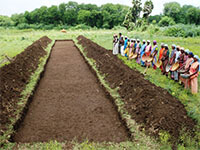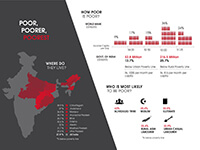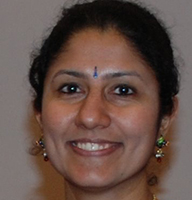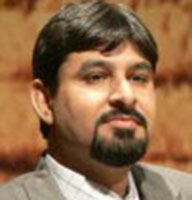
WE MAKE RESEARCH
ACCESSIBLE AND ACTIONABLE
WHAT WE DO

Social Impact Assessment
Social Impact Assessment
Through research methodologies appropriate to the organization’s needs and context, we conduct assessments of program implementation against their goals and expected outcomes.

Sector Research
Sector Research
We carry out extensive reviews of literature, data and policy to develop sector reports and thought leadership studies.

CSR Consulting
CSR Consulting
We help corporates identify appropriate programs and implementation partners for CSR. We also help design, implement and evaluate the CSR programs via partnerships with key NGOs and/or social enterprises.
OUR WORK
Women and Work - A Meta Data Analysis
Longitudinal Evaluation and M&E systems for Labournet
Aadhaar-based biometric authentication and food security
Micro Credit Crisis and Impact on families in Andhra Pradesh
Data-based Monitoring and Evaluation - Godrej properties CSR
Pro-poor Financially Sustainable Healthcare Models - Acumen Fund
Research Documentation and Creative Communication - Dharavi Biennale
Impact Assessment & Baseline Study - Swami Dayanand Educational Trust
Political Empowerment of Women through SHGs - Tamil Nadu Women’s Development Corporation
Impact of Asset Creation under MGNREGA - Rural Development and Panchayati Raj Department
Education Governance Policy Landscape - TeachForIndia
Assessment of State of Electricity Sector in Tamil Nadu - In partnership with World Resources Institute
Not everything that can be counted in counted (EPW)
Disaster assessment and rehabilitation proposal post Thane cyclone – Rural Development and Panchayati Raj Department, TN
Millennium Development Goals (MDGs) and Child Rights
About Us
We recognize that creating sustainable and scalable social change is complex. Even when solutions are available, accessibility, adoption and successful implementation are not always easy. We want to bridge the gap between research and action. We understand a problem holistically, and use insights developed from community led and participative processes, from your organization, from academic research – and facilitate the shaping of programs and policies. With many years of hands-on work experience and an inter-disciplinary background spanning across development, statistics, economics, sales, distribution, strategy and critical studies, our team is well positioned to help create, sustain and scale social initiatives.
The Team
Anita Kumar, Co-Founder
Sneha Menon, Co-Founder
Advisors

Jean-Paul Faguet

Uday Bhaskar

Pritha Venkatachalam

